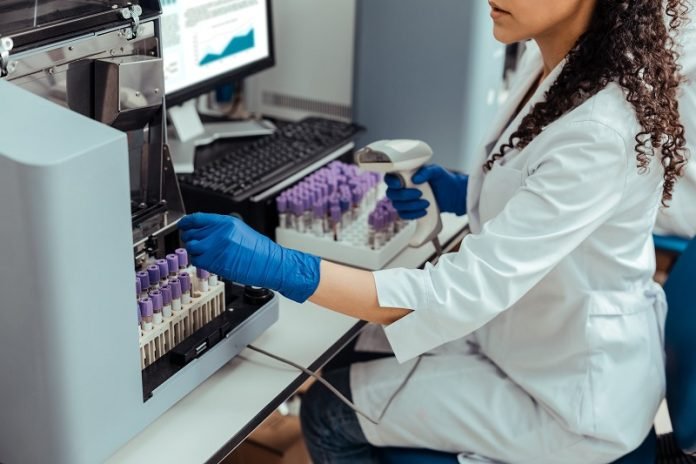
It is estimated that 400 million people worldwide are at higher risk of developing hepatocellular cancer (HCC) because of cirrhosis from chronic liver diseases including chronic viral hepatitis or non-alcoholic fatty liver disease.
In a study from Johns Hopkins Kimmel Cancer Center, scientists found a novel artificial intelligence blood testing technology that can successfully detect this liver cancer.
The blood test, called DELFI (DNA evaluation of fragments for early interception) detects fragmentation changes among DNA from cancer cells shed into the bloodstream, known as cell-free DNA (cfDNA).
In the most recent study, the team used the DELFI technology on blood samples obtained from 724 people to detect HCC, a type of liver cancer.
Of the 724 plasma samples studied, 501 were collected in the U.S. and E.U. and included samples from 75 people with HCC to train and validate the machine learning model, a type of artificial intelligence that uses data and algorithms to improve accuracy, explains Foda.
For validation, an additional 223 plasma samples were analyzed from individuals in Hong Kong and included samples from 90 people with HCC, 66 with hepatitis B virus (HBV), 35 with HBV-related liver cirrhosis, and 32 people with no underlying risk factors.
The DELFI technology uses a blood test to measure the way DNA is packaged inside the nucleus of a cell by studying the size and amount of cell-free DNA present in the circulation from different regions across the genome.
Healthy cells package DNA like a well-organized suitcase, in which different regions of the genome are placed carefully in various compartments.
The nuclei of cancer cells, by contrast, are like more disorganized suitcases, with items from across the genome thrown in haphazardly.
When cancer cells die, they release DNA fragments in a chaotic manner into the bloodstream.
DELFI identifies the presence of cancer by examining millions of cfDNA fragments for abnormal patterns, including the size and amount of DNA in different genomic regions.
The DELFI approach only requires low-coverage sequencing, enabling this technology to be cost-effective in a screening setting.
The team says currently, less than 20% of the high-risk population gets screened for liver cancer due to accessibility and suboptimal test performance.
This new blood test can double the number of liver cancer cases detected, compared to the standard blood test available, and increase early cancer detection.
The researchers say the next steps include validating this approach in larger studies for clinical use.
If you care about liver cancer, please read studies about how sugary beverages affect the liver, and diabetes drug metformin could help reverse liver inflammation.
For more information about liver health, please see recent studies about a new therapy for fatty liver disease, and results showing green Mediterranean diet could cut fatty liver disease by 50%.
The study was conducted by Victor Velculescu et al and published in Cancer Discovery.
Copyright © 2022 Knowridge Science Report. All rights reserved.



